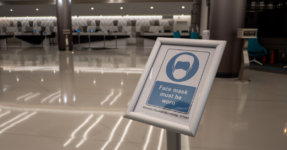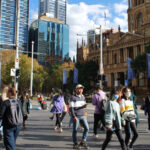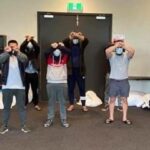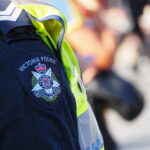Government Uses ‘Robodebt Tactics’ Over Hotel Quarantine Payments

The stories keep coming, of Australians being hounded for payments over hotel quarantine during the pandemic.
One Australian man, who had to make an emergency trip to Malaysia when his son was struck by lightning, and subsequently died, is now fighting a $3,000 bill that he cannot afford to pay.
Upon returning to Sydney in 2021, after his son’s death, the man was put into hotel quarantine, despite having a home to go to nearby and testing negative to Covid.
At the time, quarantine requirements were implemented for returning Australians as well as incoming visa holders and travellers. And, of course, with state borders also closed, this meant that people from other jurisdictions, such as Queensland or Victoria were also sent into quarantine in New South Wales, upon arrival.
This consisted of a two-week stay in a designated hotel, and the requirement to take tests for Covid-19 prior to being allowed to leave. If a person tested positive for the Covid-19 virus while in quarantine, they could not leave until they were cleared to do so.
Quarantine debt collection resembles ‘Robodebt” tactics
At the time, the NSW Government footed the bill, but it is now seeking to recover costs from people who used the service. It says the fact that costs would be passed on was clearly communicated to travellers sent into quarantine.
At the time, single travellers were charged $1,500 per week, with each additional adult costing another $500 and children over three years $250 per week.
Since the loss of his son, and subsequent legal battles overseas relating to his son’s death, this man now survives on Centrelink payments. And the government continues to hound him over a $3,000 bill, with the threat of garnishing the money from his bank account. What happens then, when you don’t actually have enough money to survive?
In the words of the man himself, a request for a review and waiver on compassionate grounds was rejected, and the demanding phone calls and the emails just keep coming.
Sound familiar?
Despite an inquiry into Robodebt, which resulted in criticism from the highest levels, including from the Prime Minister Anthony Albanese himself, after Commissioner Catherine Holmes released her findings, describing the scheme as “a crude and cruel mechanism”, and recommended criminal charges be laid against some senior officials involved, the heavy handed ‘automated’ debt recovery tactics remain.
Let’s not forget that Robdebt cost lives – it was a shameful chapter in Australia’s history.
One that should have been a wakeup call for governments, not to repeat in any way, shape or form.
And yet here we are. Still repeating old mistakes.
As time passes, and people become more willing to share their personal experiences of the Covid-19 pandemic, one thing is alarmingly clear – many of these experiences, which were shaped by the decisions that politicians made – have in fact, devastated people’s health, their financial circumstances and changed their lives, irrevocably.
Left ‘high and dry’
And now many find the government turning its back on their requests for help, after doing everything they were asked to do, under the emergency health laws.
In particular, are the thousands of people suffering vaccination injury. The paltry payments from the scheme and the strict qualification criteria have left many high and dry, forking out thousands of dollars from their own pockets for injuries caused by a vaccination that was widely encouraged, and in some cases mandated, by the Australian Government, along with being widely promoted as ‘safe and effective.’
On top of this, because the vaccinations were rolled out with limited trial times and research, medical professions are also working on the fly – not entirely prepared for the types of symptoms presented to them.
Inquiry report due September
The Federal Government’s Covid-19 Inquiry is still underway, with the final report due in September, but there’s long been concern that it just doesn’t go far enough, particularly because the State Governments, who made the bulk of the decisions, are exempt from scrutiny. And it was, by and large, these decisions which considerably impacted negatively upon human rights, and human life.
Prime Minister Albanese has also stressed that the inquiry is about “looking forward” to what could be done if, as a nation, we are confronted with a pandemic again. But without hearing real stories from real people, there will never be real change.
And, as governments continue to ignore those who need their help, at this point it’s difficult to see any real political will to make some.







